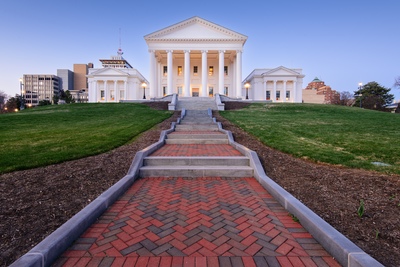
State Government Affairs, Elections & Campaigns
How Lieutenant Governors Are Selected (And Why It Matters)
December 10, 2025 | Bill Kramer
April 26, 2024 | Bill Kramer
-3d834e-1200px.jpeg)
Key Takeaways:
Traditionally, most of the measures that appear on statewide ballots for voter approval originate from state lawmakers instead of citizens. This year, of the 82 measures that states have certified for the November ballot so far, 66 were sent to the ballot from the legislature, while only 18 were initiated by citizens. That number is likely to rise because signature deadlines for citizen initiated measures are approaching, but it’s unlikely to surpass the number of legislatively-referred measures.
The citizen initiated measures that we do see on the statewide ballot are almost always the result of well funded and organized campaigns that are necessary to navigate the complex requirements to properly draft language, defend the measure from legal challenges, and collect hundred of thousands of legitimate signatures in the state in order to qualify the measure for the ballot. But in Washington, one wealthy individual has made it his mission to place his own policy priorities in front of the voters. Brian Heywood, a millionaire and self described “economic refugee” from California, financed the $6 million needed to certify six ballot measures in Washington this year.
Washington’s citizen initiated ballot measure process is one of 9 states with an “indirect” initiative. Unlike the 18 states with “direct” initiatives that are placed on the ballot once certified, indirect initiatives must go before the legislature first to give lawmakers a chance to take action before the proposal is placed on the ballot. In March, lawmakers chose to take up three of Heywood’s six ballot measures. And instead of sending them to the ballot, lawmakers approved measures to prohibit state personal income taxes (which Washington does not have), remove restrictions on police pursuits, and provide specific rights for parents to review educational materials. Since approved by lawmakers, these measures skip the governor’s office and go into effect on June 5, 2024.
The three measures that lawmakers did not take up will go before voters on November 5. These measures propose to repeal the state’s 7% capital gains tax on long-term assets over $250,000 (I-2109), repeal the state’s cap-and-trade climate law (I-2117), and allow individuals to opt out of the state’s long-term services and supports trust health care program (I-2124).
In addition to Washington, there are eight other states that fall into this category: Alaska, Maine, Massachusetts, Michigan, Nevada, Ohio, Utah, and Wyoming.
Direct democracy measures like citizen initiatives developed during the Progressive Era (1890-1920) of US politics. By amending state constitutions to transfer more power directly to the people instead of their representatives, reformers hoped to circumvent the widespread corruption in politics and state legislatures at the time. Today the initiative process is just another avenue government affairs professionals need to understand in order to navigate the policymaking process at the state level.
The map below shows states with initiatives on the ballot this November.


December 10, 2025 | Bill Kramer
-238a17-400px.jpg)
December 10, 2025 | Bill Kramer

November 5, 2025 | Bill Kramer